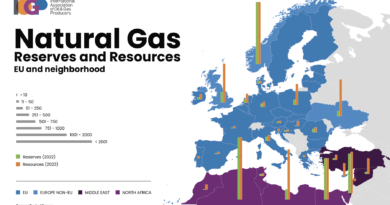
Renewables are key to Europe’s energy security. So why does Europe seem determined to make people hate them?
Tuili, Sardinia, Italy. 11 September 2024. A fire destroys 2,000 solar panels stored in a warehouse, waiting to be installed. This was just one of many acts of sabotage against renewable energy projects in Sardinia during the summer of 2024. The attacks coincided with a grassroots campaign for a citizen-led initiative to ban new wind and solar power installations, backed by over 200,000 people. Many locals feel that multinational companies are exploiting their land for profit, with little regard for environmental and social consequences. Sardinia is not an isolated case.
Across Europe, resistance to renewables is growing. In Germany, climate-sceptic Alternative für Deutschland (AfD) secured 20% of the vote in the most recent national elections. One of their key campaign promises?
Demolishing existing wind farms and blocking new renewable energy projects. If Europe is serious about improving its energy security, this trend must be reversed. Why Renewables Are Key to Energy Security Europe is a net importer of energy. In 2020, 58% of the energy used in the European Union was imported from third countries—almost all of it fossil fuels. As long as Europe remains dependent on fossil fuels, true energy security will remain out of reach. Unlike oil and gas, which Europe largely imports, renewable energy can be produced domestically, reducing reliance on external suppliers. It is true that Europe is not a major producer of wind turbines, solar panels, or batteries, nor does it have significant deposits of critical raw materials such as rare earths and lithium, needed for their production. However, once installed, renewable technologies generate electricity for their entire lifetime without reliance on foreign suppliers. Batteries help stabilise the intermittency of wind and solar power, reducing the need for gas-fired electricity generation. At the end of their lifecycle, these technologies can be recycled and used to produce the next generation of renewable energy and energy storage solutions. By contrast, continued dependence on fossil fuels means continued exposure to geopolitical crises and price shocks every time we heat our homes or fill our car tanks. Moreover, renewables are now the most affordable way to generate electricity. Hence, transitioning to renewables should be a win-win-win scenario—enhancing energy security, tackling climate change, and reducing energy costs at once. Why Are Many Protesting Against Renewables?
Despite record levels of new wind and solar installations, European households and businesses are facing persistently high electricity prices. While prices have dropped from their peak during the energy crisis, they remain, on average, 60% higher than before the escalation of the conflict in Ukraine.
This prolonged period of high energy prices deepened the crisis of energy poverty. Today, between 8% and 16% of EU citizens cannot afford to pay their energy bills. High prices also
triggered an industrial crisis, affecting not only energy-intensive industries but also small businesses like bakeries and cafés. For years, policymakers have promised that expanding renewables would lower costs. Yet, despite record installations, electricity bills remain high. This gap between expectations and reality fuels confusion, frustration, and opposition to renewable energy projects. Why Prices Remain High Despite Renewables Growth The core problem lies in how Europe’s electricity markets are structured. Under the current marginal pricing mechanism, electricity prices are determined by the most expensive source of generation needed to meet demand at any given moment. In most cases, that is gas-fired power plants. Even as the share of renewables increases, their lower production costs do not significantly reduce prices, because the price is still set by gas.
This system has two major consequences:
1. Consumers do not see the benefits of increased renewable capacity. When new wind and solar farms come online, they generate cheaper electricity, but this does not
directly lower household energy bills.
2. People who invest first-hand in renewable technologies see little financial return. Households that spent thousands of euros to install heat pumps or switch to electric vehicles expect lower operating costs than fossil fuel-based alternatives. However, with electricity prices remaining high, the expected savings are often negligible. In this context, opposition to renewable energy projects is understandable. If the switch to renewables immediately lowered energy bills, the opposition would disappear.
The Need for Immediate Action
If European policymakers are serious about maintaining public support for the energy transition – and, by extension, for energy security – they must address this market failure.
The European Commission should reform electricity market rules to ensure that consumers directly benefit from the rollout of renewable energy.
A growing political consensus is forming around the need for change. Over 30 Members of the European Parliament from four different political groups (Left, S&D, Greens, ECR) recently co-signed a letter that I drafted, which, among other asks, urged the Commission to evaluate options to decouple renewable energy prices from gas prices.
European policymakers must urgently act on this request and identify a way forward. Citizens and businesses are looking to the European Commission for solutions that make clean energy not just an environmental and security necessity, but also an economic advantage. The time to act is now.




